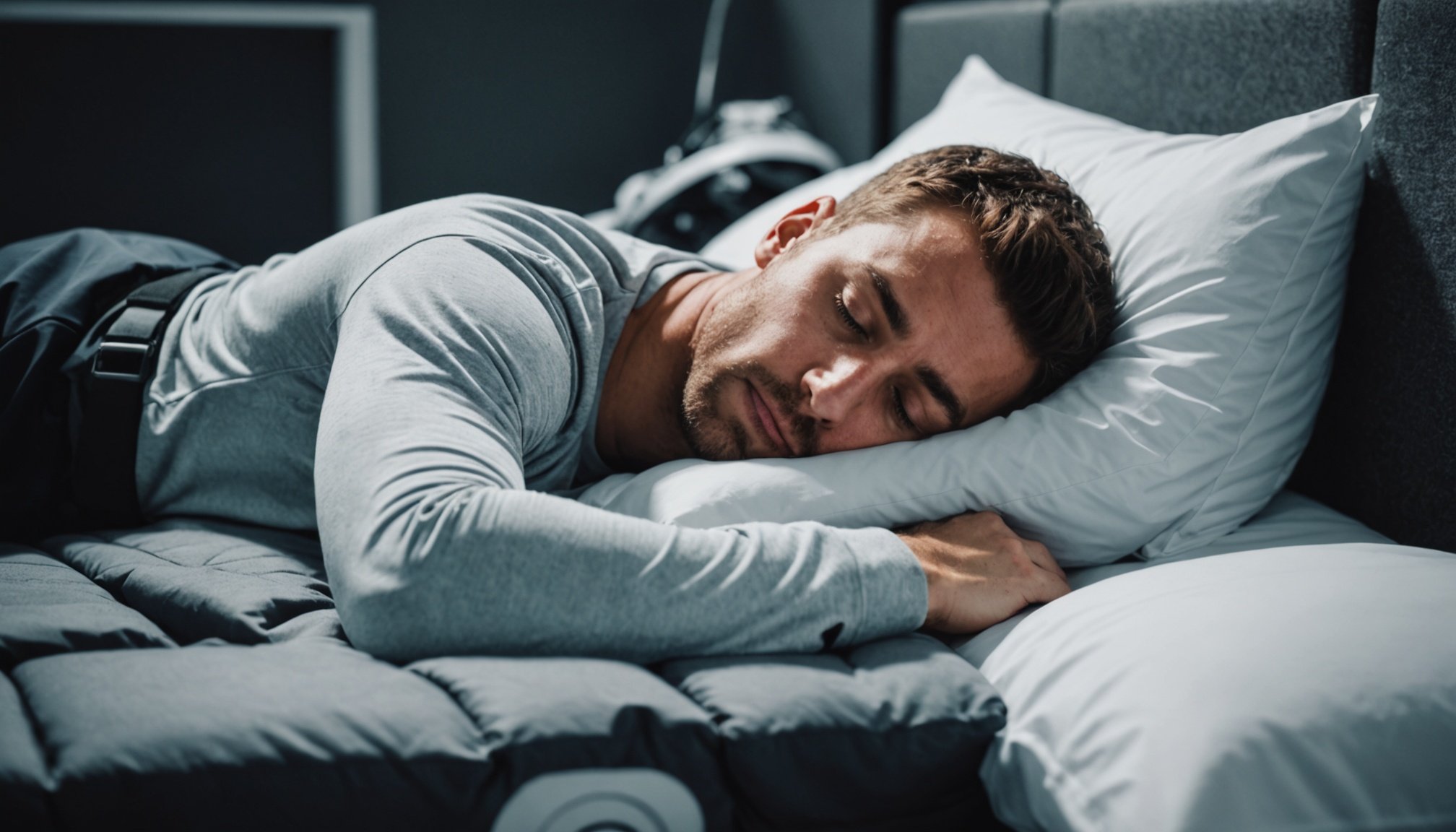Enhancing Athletic Recovery: The Crucial Role of Sleep Quality in Football Performance
The Foundation of Athletic Performance: Why Sleep Matters
When it comes to athletic performance, particularly in demanding sports like football, the importance of sleep cannot be overstated. Sleep is more than just a rest period; it is a critical component of the recovery process, essential for muscle repair, tissue regeneration, and the release of growth hormones that are vital for athletes’ performance and overall health.
Todd Anderson, a former college football standout and co-founder of Dream Performance & Recovery, emphasizes the significance of sleep in athletic performance. “Sleep is the fastest route to impact someone’s quality of life or well-being,” Anderson notes. He highlights that while strength and conditioning are important, they pale in comparison to the benefits of adequate sleep.
In the same genre : Revolutionizing Football Training: Discover the Latest Innovations in Turf Technology
The Science Behind Sleep and Athletic Recovery
Sleep plays a multifaceted role in athletic recovery. Here are some key aspects:
Muscle Recovery and Tissue Repair
Deep sleep is crucial for the repair and regeneration of muscles and tissues. During this phase, the body releases growth hormones that help in the repair of micro-tears in muscles, which are inevitable in intense physical activities like football.
Have you seen this : How can technology enhance fan experience during live matches in UK football?
Immune System and Inflammation
Quality sleep helps in regulating the immune system and reducing chronic inflammation, which is a precursor to many diseases. Adequate sleep ensures that the body’s immune response is optimized, helping athletes recover faster and perform better.
Mental Resilience and Decision Making
Sleep also impacts mental resilience and decision-making abilities. Well-rested athletes are better equipped to handle the psychological pressures of the game, make quicker and more accurate decisions, and maintain focus over extended periods.
The Impact of Sleep Deprivation on Athletes
Sleep deprivation can have severe consequences on athletic performance. Here are some key points to consider:
- Reaction Time and Coordination: Lack of sleep can slow down reaction times and impair coordination, increasing the risk of injuries and reducing overall performance.
- Mood and Motivation: Sleep-deprived athletes often experience mood swings, decreased motivation, and increased stress levels, all of which can negatively impact their performance on the field.
- Physical Health: Chronic sleep deprivation can lead to a weakened immune system, increased inflammation, and a higher risk of illnesses and injuries.
Strategies for Improving Sleep Quality
Improving sleep quality is not just about sleeping more hours but also about maintaining good sleep hygiene. Here are some strategies that athletes can adopt:
Sleep Hygiene Practices
- Consistent Sleep Schedule: Maintaining a consistent sleep schedule helps regulate the body’s internal clock.
- Sleep-Conducive Environment: Creating a sleep-friendly environment, such as keeping the bedroom cool, dark, and quiet, can significantly improve sleep quality.
- Avoiding Stimulants: Avoiding caffeine, alcohol, and electronic devices before bedtime can help in achieving better sleep.
Innovative Sleep Solutions
Todd Anderson’s company, Dream Performance & Recovery, offers innovative products designed to enhance sleep quality. For example, their mouth tape encourages nasal breathing, which can lead to more restful sleep and better oxygen levels. Anderson explains, “Mouth tape shows your body how it’s supposed to breathe. It’s kind of like putting bumpers up when you’re bowling… Breathing is like the steering wheel to your nervous system, and nasal breathing can fully relax your nervous system”.
Practical Tips for Athletes to Enhance Sleep Quality
Here are some practical tips that athletes can follow to improve their sleep quality:
- Adequate Sleep Duration: Aim for 7-9 hours of sleep each night. A study published in the British Journal of Sports Medicine found that athletes who slept 8+ hours had fewer injuries and better performance.
- Napping: Short naps during the day can help in compensating for any sleep deficit. However, it’s important to keep naps short to avoid disrupting nighttime sleep.
- Active Recovery: Engage in light physical activities like swimming, cycling, or walking to aid in recovery without overstraining the body. This can also help in improving sleep quality.
Case Studies: Athletes Who Prioritize Sleep
Several elite athletes have attributed their long and successful careers to prioritizing sleep. Here are a few examples:
Roger Federer and LeBron James
Both Federer and James are known for their rigorous sleep schedules. They prioritize getting 12 hours of sleep per day, which includes napping, to ensure they are well-rested for their performances.
Cristiano Ronaldo
Ronaldo follows a strict sleep schedule and maintains a healthy diet to support his sleep and overall health. His dedication to sleep and nutrition has allowed him to perform at a high level well into his late 30s.
Table: Comparing Sleep Habits of Elite Athletes
| Athlete | Sleep Duration | Additional Sleep Practices | Performance Impact |
|---|---|---|---|
| Roger Federer | 12 hours | Napping during the day | Enhanced recovery, better decision-making |
| LeBron James | 12 hours | Napping during the day | Improved physical performance, reduced injury risk |
| Cristiano Ronaldo | 8-10 hours | Consistent sleep schedule, healthy diet | Maintained peak physical condition, reduced inflammation |
| Alun Wyn Jones | 8-10 hours | Focus on strength and flexibility training | Extended career in rugby, improved resilience |
Enhancing athletic recovery through quality sleep is a multifaceted approach that involves understanding the science behind sleep, adopting good sleep hygiene practices, and utilizing innovative sleep solutions. For football athletes, prioritizing sleep is not just a recommendation but a necessity to maintain peak performance, reduce injury risk, and prolong their careers.
As Todd Anderson succinctly puts it, “Sleep is the biggest opportunity. So as we forge forward, and as technology and science evolve, we’ll create whatever products we feel are going to have the biggest impact on that mission”.
By integrating these strategies into their daily routines, athletes can ensure they are not only performing at their best but also maintaining their overall health and well-being. Remember, quality sleep is the cornerstone of athletic performance, and it’s time to make it a central part of the conversation around fitness and sports.











